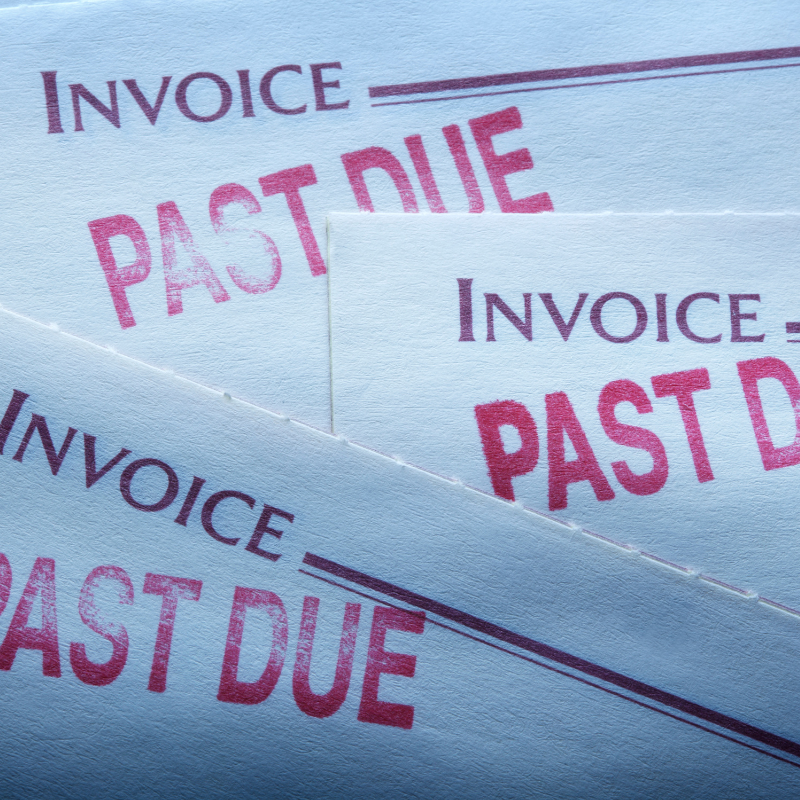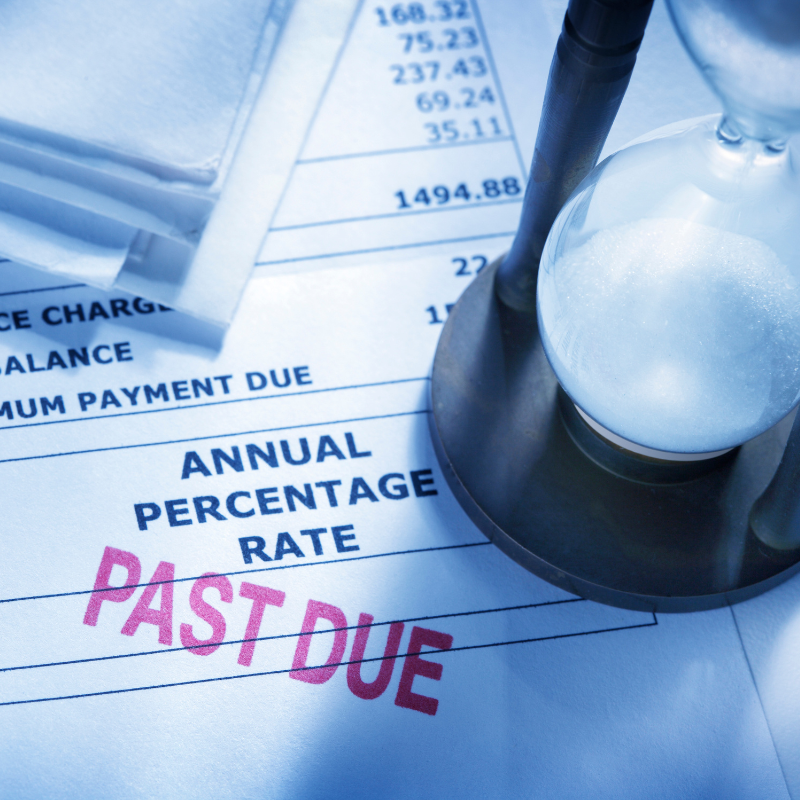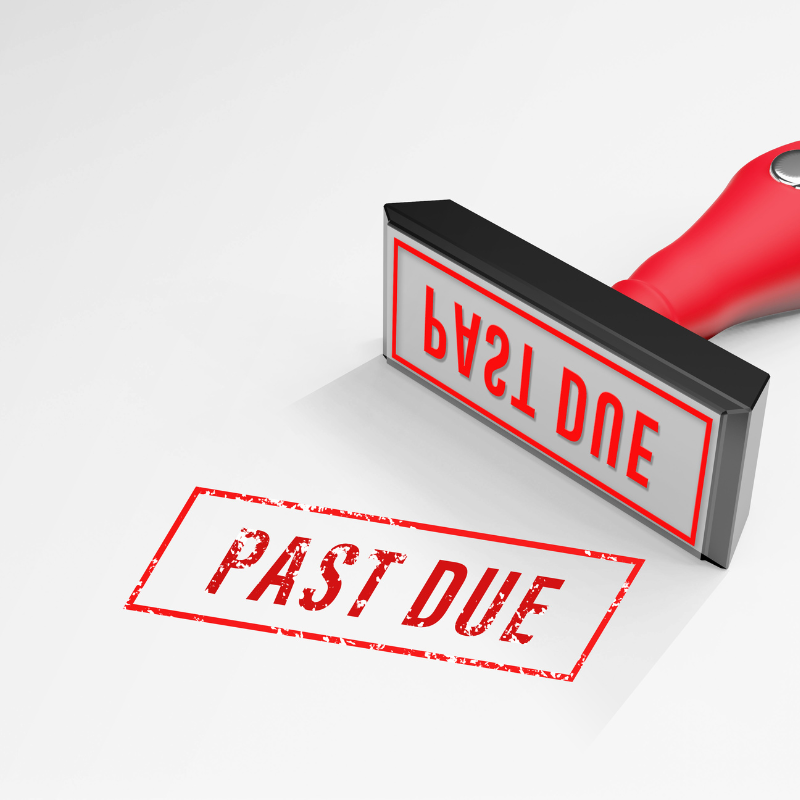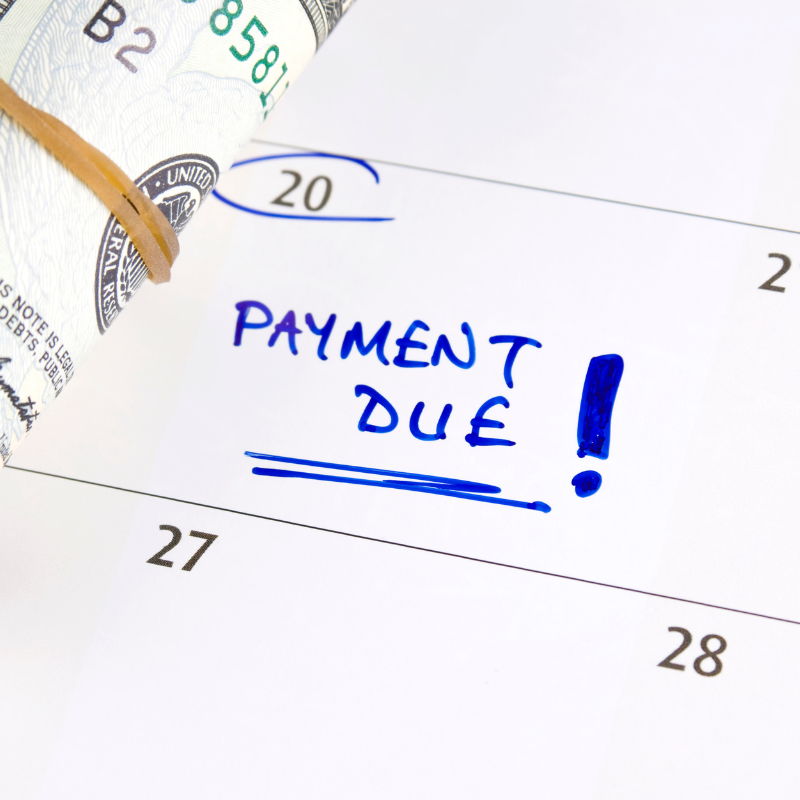
TABLE OF CONTENTS
- Understanding Assessments: What They Are And How They Work
- The Rights Of Hoas To Charge Assessments
- Navigating Assessment Increases: What You Need To Know
- Exploring Harris, Montgomery, And Galveston Counties In Texas
- Payment Options For Overdue Assessments: Installments Vs Collections
- Impact Of Overdue Assessments On Credit Reports
- The Consequences Of Unpaid Assessments: Foreclosure In Texas
- A Comprehensive Guide To Hoa Laws In Texas
- Judicial Foreclosure In Texas: Process And Implications
- Nonjudicial Or Expedited Foreclosure In Texas
- Legal Notice Requirements For Delinquent Hoa Dues In Texas
- Understanding The Lien Process For Hoas And Coas
- Protecting Your Home From Hoa And Coa Liens
- Exploring The Foreclosure Process For Hoa And Coa Liens In Texas
- Tips For Dealing With Delinquent Hoa Dues In Texas
- The Role Of Attorneys In Resolving HOA Assessment Disputes
- Negotiating Payment Plans For Overdue Assessments With Your Hoa/Coa
- Common Misconceptions About Hoa/Coa Assessments And Liens Debunked
- Staying Informed: Keeping Up With Changes To HOA Laws In Texas
- What Happens If You Don’t Pay Your Hoa Dues In Texas?
- What Is The New Hoa Law In Texas In 2024?
- What Is The Statute Of Limitations On Hoa Dues In Texas?
- What Is The Maximum Late Fee For Hoa In Texas?
Understanding Assessments: What They Are And How They Work
Understanding assessments is critical for Texas homeowners and real estate investors when dealing with homeowners associations (HOAs). Assessments are the regular fees that HOA members pay to cover the costs of maintaining common areas and amenities in their community.
These fees can vary in amount and frequency, but they are usually set by the HOA board and detailed in the association’s governing documents. Failure to pay assessments on time can lead to penalties or legal action from the HOA, so it’s crucial for homeowners to understand the process.
Real estate investors should consider assessment amounts when purchasing a property in an HOA community, as they will be responsible for paying them if they become the owner.
The Rights Of Hoas To Charge Assessments

Should you own a home or invest in real estate in Texas, you should know that homeowners associations (HOAs) have the right to charge late HOA dues assessments. All properties in an HOA area are legally required to pay assessments so that the association can cover the costs of running and maintaining common areas and amenities.
These fees are usually spelled out in the HOA’s governing documents, like the bylaws or the covenants, conditions, and restrictions (CC&Rs). If you don’t pay these assessments, the HOA may fine you or even take legal action.
It is very important for homeowners and real estate investors to know what they need to do to pay their HOA dues and know that HOAs have the right to charge assessments.
Navigating Assessment Increases: What You Need To Know
Texas homebuyers and investors should be aware of HOA assessment increases. Unexpected maintenance or repair costs or community amenities can cause these increases.
Keep up with the HOA’s financials and budgeting to handle these increases. Homeowners should also attend HOA board meetings to learn about potential assessment increases.
Real estate investors should review the HOA’s financial documents before buying a property and factor in assessment increases when calculating returns. By staying informed and proactive, Texas homeowners and real estate investors can better manage delinquent HOA dues assessment increases.
Exploring Harris, Montgomery, And Galveston Counties In Texas

Delinquent HOA dues in Harris, Montgomery, and Galveston counties can have serious consequences for Texas homeowners and real estate investors. HOA regulations in these three counties are strict, with penalties for non-payment.
In Harris County, for instance, homeowners who fall behind on their payments may face foreclosure proceedings. Montgomery County has strict enforcement measures, including placing a lien on the property and denying access to community amenities.
Delinquent homeowners in Galveston County may face legal action as well as additional fees. Individuals who invest in these areas must keep up with their HOA dues in order to avoid potential problems or financial losses.
Payment Options For Overdue Assessments: Installments Vs Collections
As a Texas homeowner or real estate investor, you should be aware of the various options for paying past-due HOA fees. The two primary options are installment plans and collections.
An installment plan allows you to pay off your delinquent debt over time, usually on a set schedule. This can help those who are having financial difficulties but want to catch up on their payments.
Collections involve hiring a professional agency to collect overdue amounts, which can lead to additional fees and damage to credit scores. Before making a decision, carefully weigh the benefits and drawbacks of each option.
Impact Of Overdue Assessments On Credit Reports

If you own a home or invest in real estate property in Texas, it is crucial to understand the potential impact of overdue HOA dues on your credit report. When homeowners fail to pay their HOA assessments on time, it can have a negative effect on their credit scores.
This is because HOAs are considered creditors and have the right to report delinquent payments to credit bureaus. As a result, late or missed payments can lower your credit score and make it challenging to obtain loans or secure favorable interest rates in the future.
For real estate investors, having delinquent HOA dues can also hinder their ability to obtain financing for new investment properties. Therefore, it is essential for both homeowners and investors to stay current on their HOA dues to avoid any negative impact on their credit reports.
The Consequences Of Unpaid Assessments: Foreclosure In Texas
One of the most pressing concerns for Texas homeowners and real estate investors is the issue of delinquent HOA fees. These fees are necessary for the upkeep and maintenance of a community’s common areas, but many people do not pay them on time.
Unpaid assessments can lead to severe consequences, such as foreclosure. In Texas, HOAs have the authority to foreclose if an owner fails to pay their dues after receiving proper notice.
Not only will the homeowner lose their property, but any potential buyers or real estate investors may also lose their investments. To avoid Texas foreclosure, all parties involved must understand and follow HOA regulations.
A Comprehensive Guide To Hoa Laws In Texas

HOA laws in Texas require homeowners and real estate investors to have a thorough understanding of the regulations in place. Managing delinquent dues is an important aspect of Texas HOA laws.
Homeowners and investors must be aware of the consequences and legal action that may be taken if HOA dues are not paid on time. In recent years, Texas has cracked down on delinquent dues, with HOAs enforcing stricter penalties.
This guide aims to provide a comprehensive overview of Texas HOA laws and how they apply to delinquent dues, assisting homeowners and investors in successfully navigating these regulations. The article discusses payment deadlines, late fees, and HOAs’ legal options for collecting unpaid dues.
Understanding these laws helps individuals avoid costly fines and legal disputes with their HOA.
Judicial Foreclosure In Texas: Process And Implications
In Texas, one of the results of not paying HOA dues is the possibility of a judicial foreclosure. This process involves them going to a court and filing a lawsuit against the delinquent homeowner with the aim of getting an order from the court to foreclose on the property.
The first thing to be done is for HOA to send a notice of delinquency and allow homeowners some time to pay their fees. If nothing happens, then they can proceed by filing charges and obtaining a judgment against the homeowner.
This leads into public auction where the property can be sold off to anyone including real estate investors. Homeowners who are at risk of judicial foreclosure should consult with lawyers and think about options such as payment plans or negotiate with their HOA in order not to lose their homes.
It’s important that real estate investors understand this process and take the necessary steps before buying properties at auctions.
Nonjudicial Or Expedited Foreclosure In Texas

People who own homes or invest in real estate in Texas may run into problems when their HOA dues are late. There are, however, options for people who want to do something about late payments.
Nonjudicial or expedited foreclosure is one choice. The HOA can start this process without going through the court system. In this step, a notice of default is sent to the homeowner, and they are given a certain amount of time to make up their payments before the foreclosure process begins.
People who own homes or invest in real estate should learn about this process so that they can deal with late HOA dues in Texas effectively.
Legal Notice Requirements For Delinquent Hoa Dues In Texas
As a Texas homeowner or real estate investor, you should know what notices you need to give if your HOA dues are past due. State laws say that HOAs have to send a written notice to homeowners who are behind on their dues.
This notice needs to have specific details like the amount owed, the due date, and what will happen if the payment isn’t made. Homeowners have a certain amount of time to pay their dues before the HOA can take legal action against them.
To avoid more problems or disagreements, it is very important for both sides to follow these legal notice requirements. If these rules aren’t followed, both the homeowner and the HOA may have to pay extra fees and face penalties.
Understanding The Lien Process For Hoas And Coas
Serious penalties apply to Texans who fail to pay their homeowners’ or property investors’ association dues on time. The process of liens is one of these outcomes.
When a homeowner does not pay their dues, the homeowner’s association or condominium can legally claim the property as a lien. This gives the association the legal right to sell the property in order to collect any outstanding dues.
The homeowner is given an opportunity to pay their dues before any further action is taken, as the HOA or COA must first send a notice of delinquency before the lien process can begin. If the homeowner continues to refuse to pay, the association has the option to notify all parties involved and file a lien with the county clerk’s office.
Homeowners and real estate investors must comprehend this procedure, which can be lengthy and difficult, to escape possible legal and financial consequences.
Protecting Your Home From Hoa And Coa Liens
Having HOA and COA liens on their properties is one of the things that Texas homeowners and real estate investors worry about the most. This kind of lien can be put on a property whose owner doesn’t pay their fees or dues.
This could lead to fines and even put the owner’s rights to the property at risk. To keep these types of liens from happening to your home, make sure you pay your HOA and COA dues on time and take care of any violations right away.
To avoid any confusion or disagreements, it is also important to know the rules and laws set by the HOA or COA. Additionally, staying in touch with your HOA or COA board can help keep problems from happening out of the blue.
You can keep your home free of any possible liens by taking action and staying informed.
Exploring The Foreclosure Process For Hoa And Coa Liens In Texas

Texas law says that homeowners associations (HOAs) and condominium owners associations (COAs) can legally put liens on homes that haven’t paid their dues. In other words, if a homeowner doesn’t pay their HOA or COA fees, the group can put a lien on their home.
The homeowners’ association can take back the property if the dues aren’t paid on time. This is called foreclosure, and it is regulated by state laws and rules.
People who own homes or invest in real estate should know about this process to avoid problems with their finances.
Tips For Dealing With Delinquent Hoa Dues In Texas
In Texas, it can be hard for both homeowners and real estate investors to deal with HOA dues that are past due. There are, however, some useful tips that can make the process go more quickly and easily.
First, it’s important to know the rules and laws about HOA dues in Texas since they might be different from those in other states. Setting up clear lines of communication with the HOA board and trying to work out a payment plan or a settlement is also a good idea.
Also, staying organized and keeping track of all payments and communications can help keep things clear and avoid problems. Lastly, getting legal help from an experienced lawyer can be very helpful and safe as you deal with this complicated issue.
People who own homes or invest in real estate can handle late HOA dues in Texas by using these tips.
The Role Of Attorneys In Resolving HOA Assessment Disputes
Attorneys play an important role in resolving disputes over delinquent HOA dues in Texas. These legal professionals have a thorough understanding of the laws and regulations governing homeowners associations and can advise both homeowners and real estate investors.
They can also assist parties in mediating disputes and negotiating payment plans or settlements. Attorneys can also help you file lawsuits against delinquent homeowners and enforce liens on their properties.
Having an experienced attorney on your side can significantly increase your chances of resolving HOA assessment disputes in a timely and efficient manner.
Negotiating Payment Plans For Overdue Assessments With Your Hoa/Coa
When it comes to delinquent HOA dues in Texas, negotiating payment plans with your HOA/COA can be a good option for both homeowners and investors. This process entails working with the HOA/COA to devise a plan that allows you to pay off your past-due assessments in manageable installments.
It is critical to approach this negotiation process with open communication and a desire to reach a mutually acceptable solution. Homeowners and real estate investors should be prepared to provide proof of financial hardship or extenuating circumstances that contributed to the delinquency.
By successfully negotiating a payment plan, you can avoid potential legal action while maintaining a positive relationship with your HOA/COA.
Common Misconceptions About Hoa/Coa Assessments And Liens Debunked

A lot of people have the wrong ideas about HOA/COA assessments and liens in Texas, which can make things hard for homeowners and real estate investors. People often think that if their dues haven’t been paid, a HOA or COA can’t put a lien on their property.
That being said, the Texas Property Code says that a HOA or COA can put a lien on a property for unpaid dues, even if they haven’t sent a demand letter. Another false belief is that if you pay the amount that is past due, the lien will be taken off the property automatically.
In reality, investors and homeowners need to carefully read their association’s rules and follow the right steps to get the lien taken off. Some people also think they can get out of paying assessments by saying they weren’t told about them.
But Texas law says that not getting notice is not a good reason to not pay dues. Homeowners and real estate investors need to know these common misconceptions about HOA/COA assessments and liens in order to manage their properties well and stay out of trouble with the law.
Staying Informed: Keeping Up With Changes To HOA Laws In Texas
As a homeowner or real estate investor in Texas, you must stay up to date on changes to HOA laws in order to avoid potential problems with delinquent HOA dues. The state of Texas recently implemented stricter regulations for collecting delinquent dues, so individuals should be aware of any changes that may affect them.
By staying current on HOA laws and regulations, homeowners and real estate investors can ensure they are following the proper procedures and avoiding legal issues. This includes being aware of payment deadlines, understanding the consequences of nonpayment, and staying current on any updates or amendments to existing laws.
Staying informed is essential for maintaining good standing with your HOA and avoiding financial or legal complications.
What Happens If You Don’t Pay Your Hoa Dues In Texas?
It is essential for anybody who owns a home or invests in real estate in the state of Texas to be aware of the repercussions that come with failing to pay their HOA dues.
Delinquent homeowners association (HOA) dues have been the subject of increased enforcement by the state in recent years, with severe penalties and repercussions being imposed on those who fail to fulfill their financial obligations.
There is a possibility that you will not only be subject to legal action and the possibility of foreclosure on your property, but you may also be subject to additional fees and interest obligations.
The purpose of this guide is to provide useful information regarding the significance of making timely payments for HOA dues and the consequences that may result from failing to fulfill this responsibility in the state of Texas.
What Is The New Hoa Law In Texas In 2024?

A new HOA law will go into effect in Texas in 2024. Its goal is to make it harder for people to pay their dues on time. This law is meant to protect both homeowners and real estate investors by making sure that HOAs pay their dues on time and stay financially stable.
With this law, HOAs will be able to fine and punish members who don’t pay, as well as take legal action for not paying. Those who own homes or invest in real estate should be aware of this new law and make sure they pay their fees on time to avoid any problems.
This guide tells you everything you need to know about Texas’s new HOA law and how it might affect you as a homeowner or real estate investor.
What Is The Statute Of Limitations On Hoa Dues In Texas?
Texas takes delinquent HOA dues seriously. Homeowners and real estate investors should understand the statute of limitations on these fees. According to Texas law, the statute of limitations for collecting unpaid HOA dues is four years from the date they are due.
This means that if a homeowner or investor fails to pay their dues within this timeframe, the HOA is unable to legally collect them. Each HOA may have unique rules and regulations for late fees and collections, so it’s important to carefully review the governing documents.
Staying informed about the statute of limitations for HOA dues in Texas can help homeowners and investors avoid legal issues and maintain positive relationships with their community association.
What Is The Maximum Late Fee For Hoa In Texas?
When it comes to delinquent HOA dues in Texas, strict regulations are in place to ensure prompt payments and keep communities running smoothly. It is critical for homeowners and real estate investors to understand the maximum late fee for HOA dues.
According to state law, the most a HOA can charge for late fees is 10% of the delinquent assessment or $15, whichever is higher. This means that if a homeowner fails to pay their monthly bills on time, they may face serious consequences.
To avoid incurring unnecessary fees or consequences, all parties involved must be aware of these regulations and pay their HOA dues on time.
These findings apply throughout Texas, including Dallas, Fort Worth, Houston, San Antonio, Austin, El Paso, and the surrounding areas. For further assistance, please contact us at (214) 225-3038. For additional information, please visit Ready House Buyer.
More Resources For Texas Home Sellers
| HOME OWNER ASSOCIATION | HOME OWNERS ASSOCIATION | HOMEOWNER’S ASSOCIATION | HOMEOWNERS’ ASSOCIATIONS | HOMEOWNER ASSOCIATION (HOA) | HOMEOWNERS ASSOCIATION (HOA) |
| HOME OWNER | TEXANS | LIENHOLDERS | FIRST LIEN | NON-JUDICIAL FORECLOSURE | FORECLOSED |
| FORECLOSES | FORECLOSING | STATUTES OF LIMITATION | SUING | DEBT | CONDOS |
| MANAGEMENT | BANKRUPTCY | BANKRUPTCIES | COLLECTION AGENCY | DEBT COLLECTION | MONEY |
| PHONE | MORTGAGE | FIRST MORTGAGE | LENDERS | COMPANY | |
| EVICTION | EVICTING | EVICTED | PROPERTY OWNERS | QUESTION | |
| FIRST CLASS MAIL | BOARD OF DIRECTORS | TERMS OF USE | LEVIES | TAXES | CERTIFIED MAIL |
| REFINANCE | PRIVACY POLICY | THE INTERNET | BANK | ATTORNEY-CLIENT RELATIONSHIP | ATTORNEYS’ FEES |
| ATTORNEY’S FEES | TEXT MESSAGES | REAL PROPERTY | REAL ESTATE LAW | ESTATE LAW | JUDGEMENT |
| COOKIES | OF THE TEXAS | OF THE TEXAS PROPERTY |


